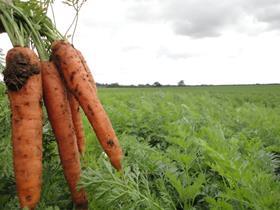
While the organic market continues to grow in the UK, Kantar figures have revealed that the overwhelming majority of sales are accounted for by less than 4.5 million shoppers, challenging the sector to boost purchase frequency.
According to Kantar Worldpanel data, 23 million people buy organic each year, however nearly 80 per cent of spend is accounted for by just 4.4 million shoppers.
Speaking at the Soil Association Certification’s annual trade conference on 17 October, Oliver Lowe, business development director for Kantar Worldpanel, said: “[The] challenge is to get those four million shoppers to increase their organic spend, and to persuade the 23 million to become more regular organic users.
“Organic suppliers should work hard to recognise the trends that are driving non-organic categories and seize on these opportunities to get more organic in the shopping basket.”
According to the Soil Association’s 2018 Organic Market Report, the organic market is worth £2.2 billion, with sales dominated by the big retailers.
Meanwhile, independent retailers account for around 16 per cent of sales, with the channel forecast to grow further as shopping habits change and top-up shopping becomes the norm.
Organicsales are growing well ahead of non-organic at UK retailers – a trend that the Soil association believes will continue as demand for organic increases and shopping demographics change.
Significant growth is coming from non-traditional supermarkets and discounters – especially Aldi, Lidl and Co-Op – challenging the traditional dominance of Waitrose, Tesco and Sainsbury’s in this area and opening the organic market to new shoppers.
Clare McDermott, business development director for Soil Association Certification, told conference deleagtes that the growing demand for organics is a timely challenge to organic businesses and trade bodies to seize the momentum and get the organic message across clearly to consumers.
“This is an exciting time to be part of the organic movement,” she said. “We are already taking steps to ensure that our message and proposition for shoppers is a clear one so that we can encourage less regular customers to keep returning to buy organic products and encourage new shoppers to pick organic from the shelf or online.
“If everyone in the industry works to ensure we have a clear message on what organic is and we continue to build availability then, then we can capture this growing interest and engage more people more often and continue this buoyant growth.”
The conference brought more than 150 delegates from organic businesses, marketers and retailers to discuss continuing opportunities for the organic market and showcase success stories for organic producers.



